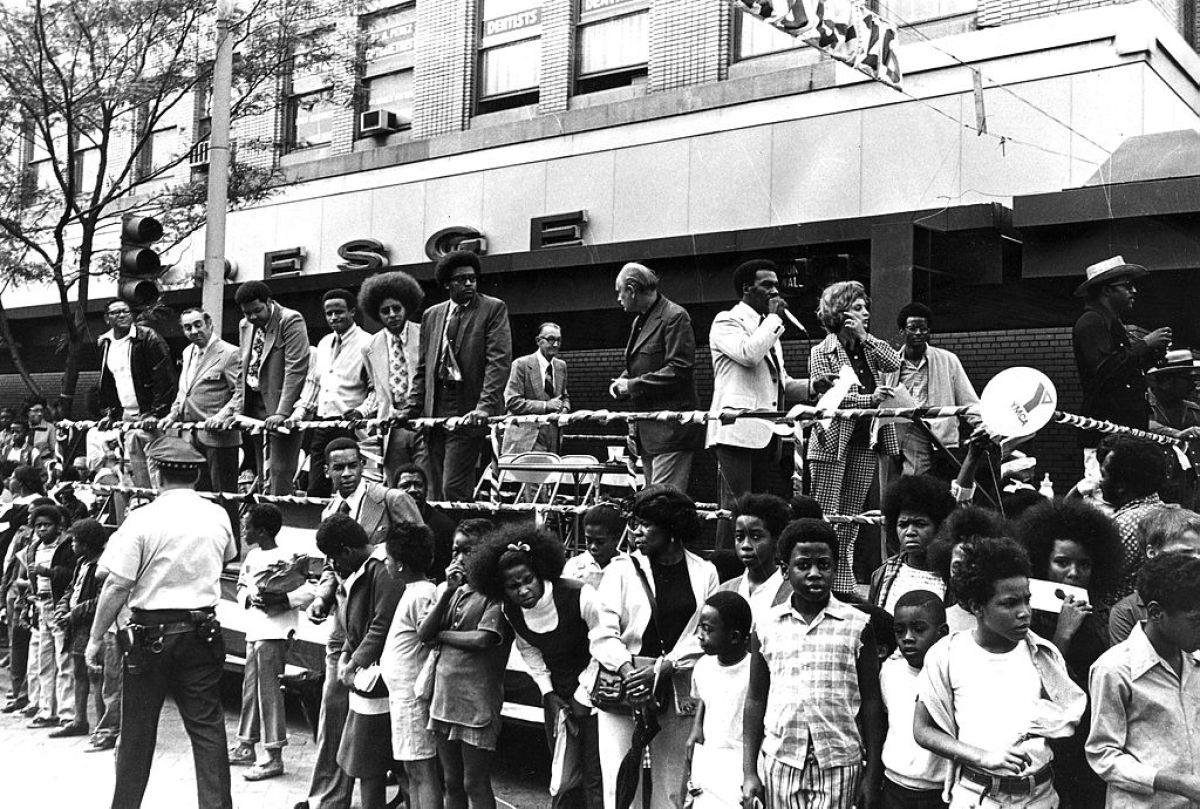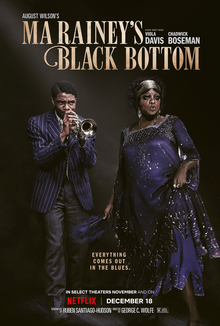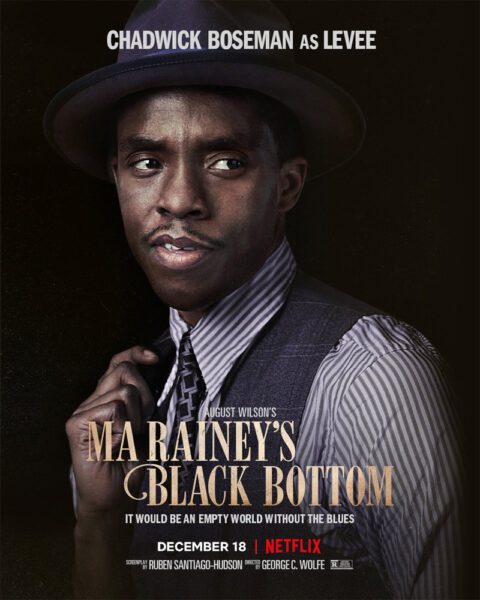Chadwick Boseman shines in his final role in ‘Ma Rainey’s Black Bottom’
By Joe McFadden

Ma Rainey’s Black Bottom is a powerful exploration of artistry, race, inequality and the American dream, featuring stellar performances from both Viola Davis and Chadwick Boseman, in his final role.
The film opens with an extravagant set piece showcasing Ma Rainey, the ‘Mother of Blues’, performing with her band to an African-American audience in rural Georgia. The power of the music and its effects on the audience are felt through the sheer power of Davis’ performance, who truly embodies Rainey and her impact on the blues and African-American culture.
The film then moves to the main setting, a claustrophobic Chicago recording studio on a hot summer day in 1927. Despite some immersion-breaking CGI for the exteriors, the period setting is brought to life through creative costume design and an elaborate set which provides the perfect space for the performers to bring this very human drama to life.
Special praise must be given to costume designer Ann Roth whose colourful and intricate costumes help illuminate the variety of characters and conflicts at the heart of the story. Ma Rainey’s costumes are bold, bright and colourful – showcasing the sheer ferocity that Ma Rainey brings to the story. Davis’ performance displays individuality which is central to both who the real life Rainey was as a person and to her character’s primary dynamic – her fight to do things on solely on her terms. The costumes, also contrast against the dark, grimy background of the recording studio, drawing up the roots of soul in what is a notably soulless environment.

The rest of the film takes place over the course of an afternoon with the action largely centred in two locations – the recording studio itself and the band’s rehearsal chamber. The theatrical nature of the film is both beneficial and detrimental to its impact as a piece of art. As an adaptation of August Wilson’s 1982 play; however, at times it feels like the opportunities a motion picture gives to the story are lost on the filmmakers.
Firstly, the claustrophobic setting and the heated interactions of the band members – offering an insight into race in America and what it means to be a successful black person in a segregated society – lend the film a brevity and intensity that is best achieved on stage (or in a stage-like setting, e.g. 12 Angry Men). Wilson’s heartfelt monologues are played to perfection by the performers, with the limited setting allowing Davis and Boseman (and a standout supporting cast, including Euphoria’s Colman Domingo) to truly explore the nuances of their characters and what Wilson’s words mean both to them, the audience and as a statement on the social issues that still pervade America today.
However, the limited setting is frustratingly formulaic and contrived at times. Director George C. Wolfe gives a respectable turn at bringing the story to life; however, at times his directorial choices feel compressed. The camerawork and visual grammar can feel at odds – brimming with wide shots, pans and steadicam whilst others are focused, intense close-ups. The impact is not negated, however focus to be lost, particularly in a couple of heated exchanges in the film’s second half. Black Bottom’s theatricality is perfect for the stage yet seems too melodramatic for cinema.
Themes of race, oppression and the American dream offer a compelling insight. At its best Black Bottom is an exploration of humanity and ambition; a social drama which uses race to critique society but also a lens to explore universal feelings such as desire, ambition, success, failure and the untimely power of music.
This aspect of American history is embodied in the film, particularly by Chadwick Boseman’s Levee as his character desires something greater and wants more than even a pioneer of her time, can provide. However, as Levee will ultimately discover, ‘freedom’ (whether it be artistic, financial or literal) is not that easy to attain.

Chadwick Boseman offers definitive talent and an embodiment of artistry. His performances in recent years will rank with the best put to screen. Black Bottom is a career-best and feat achieved whilst battling colon cancer. An Oscar nomination and win is not only warranted, but necessitated by this film and his turn as Stormin’ Norman in Spike Lee’s superb Da 5 Bloods from earlier this year.
Ultimately, Ma Rainey’s Black Bottom is a good film elevated by outstanding performances and heartfelt themes. However, an overreliance on the film’s theatricality hampers its translation to screen which can prove frustrating among an extremely interesting, enjoyable and nuanced viewing. An excellent score by Branford Marsalis , only lifts Ma Rainey and the blues towards the recognition that the story deserves.
4/5.
Ma Rainey’s Black Bottom was released to on Netflix on the 18th of December.







